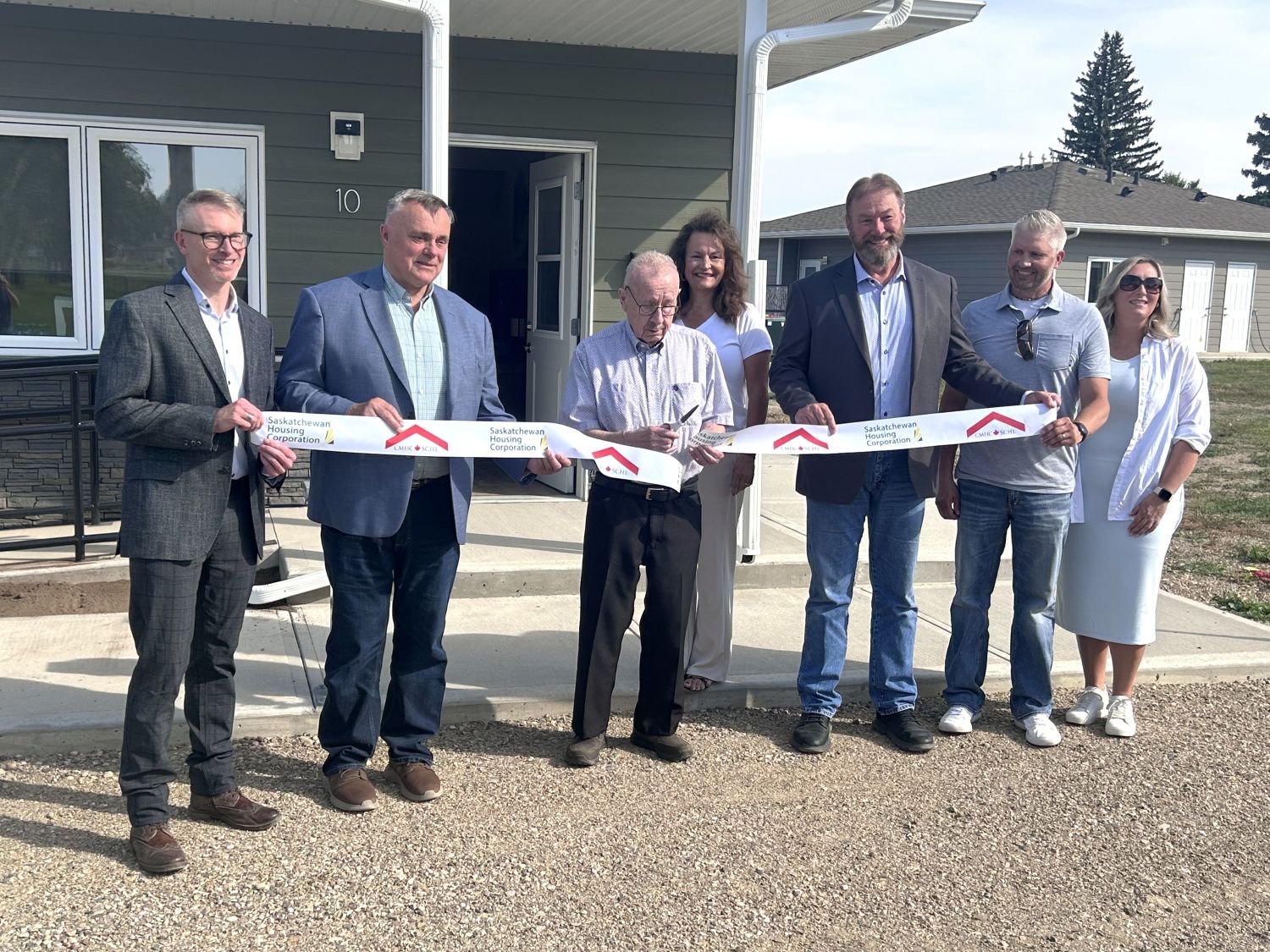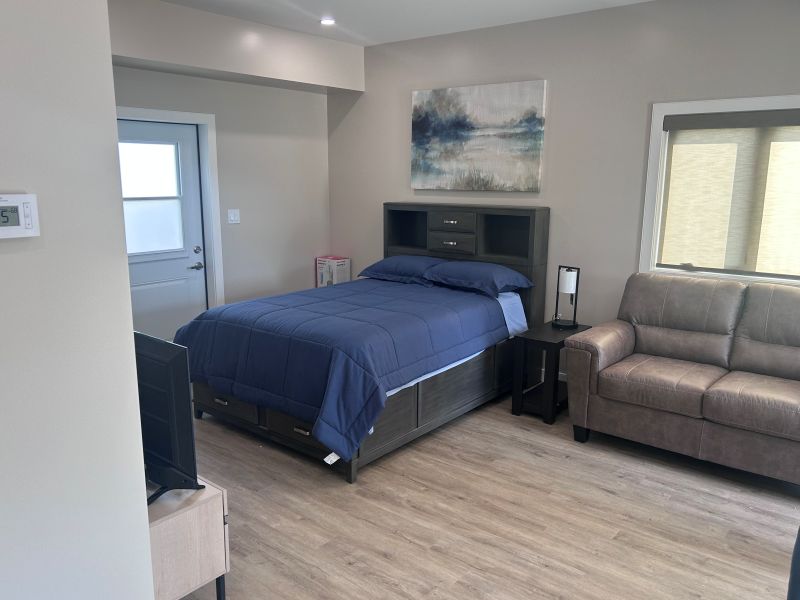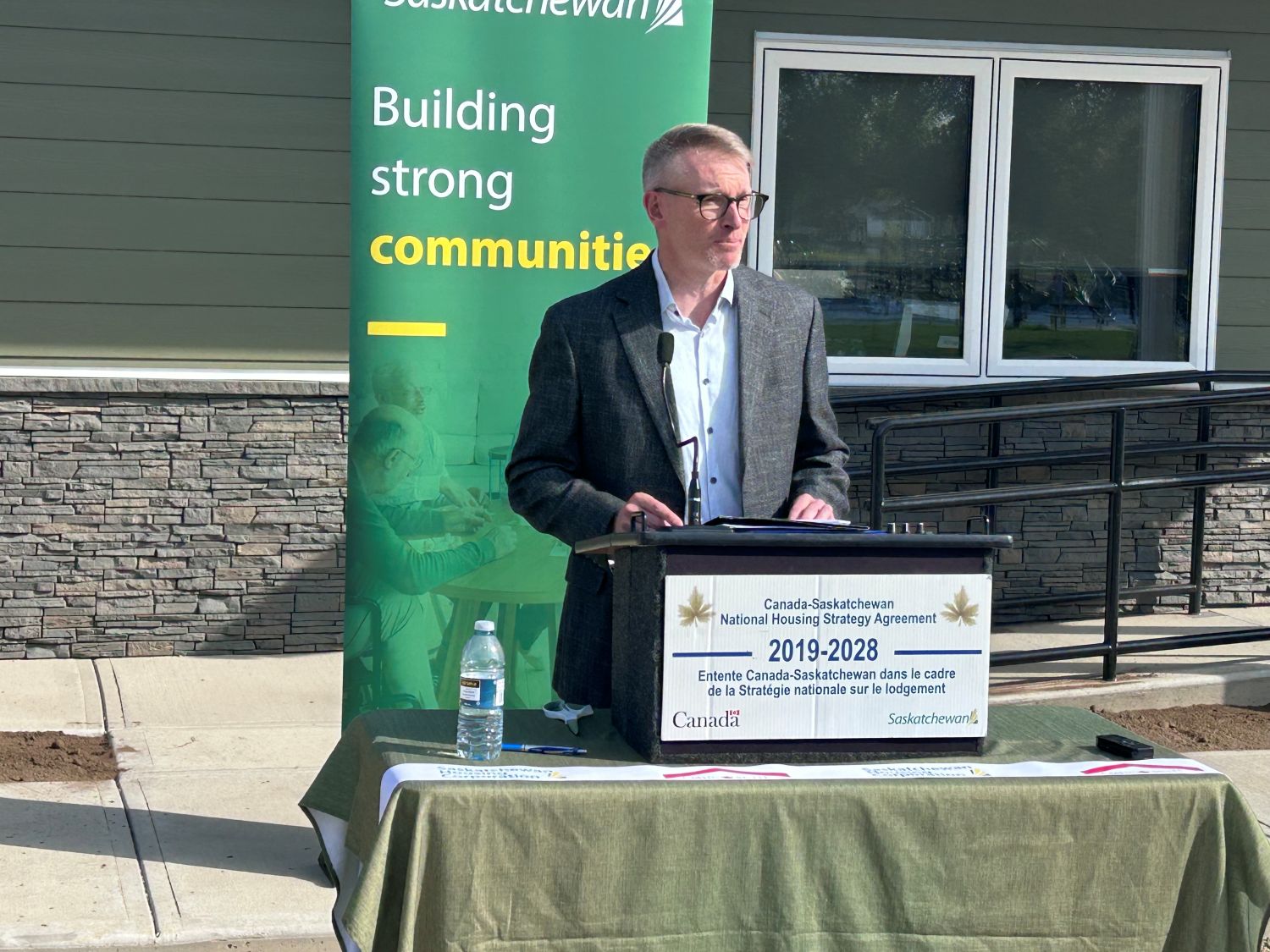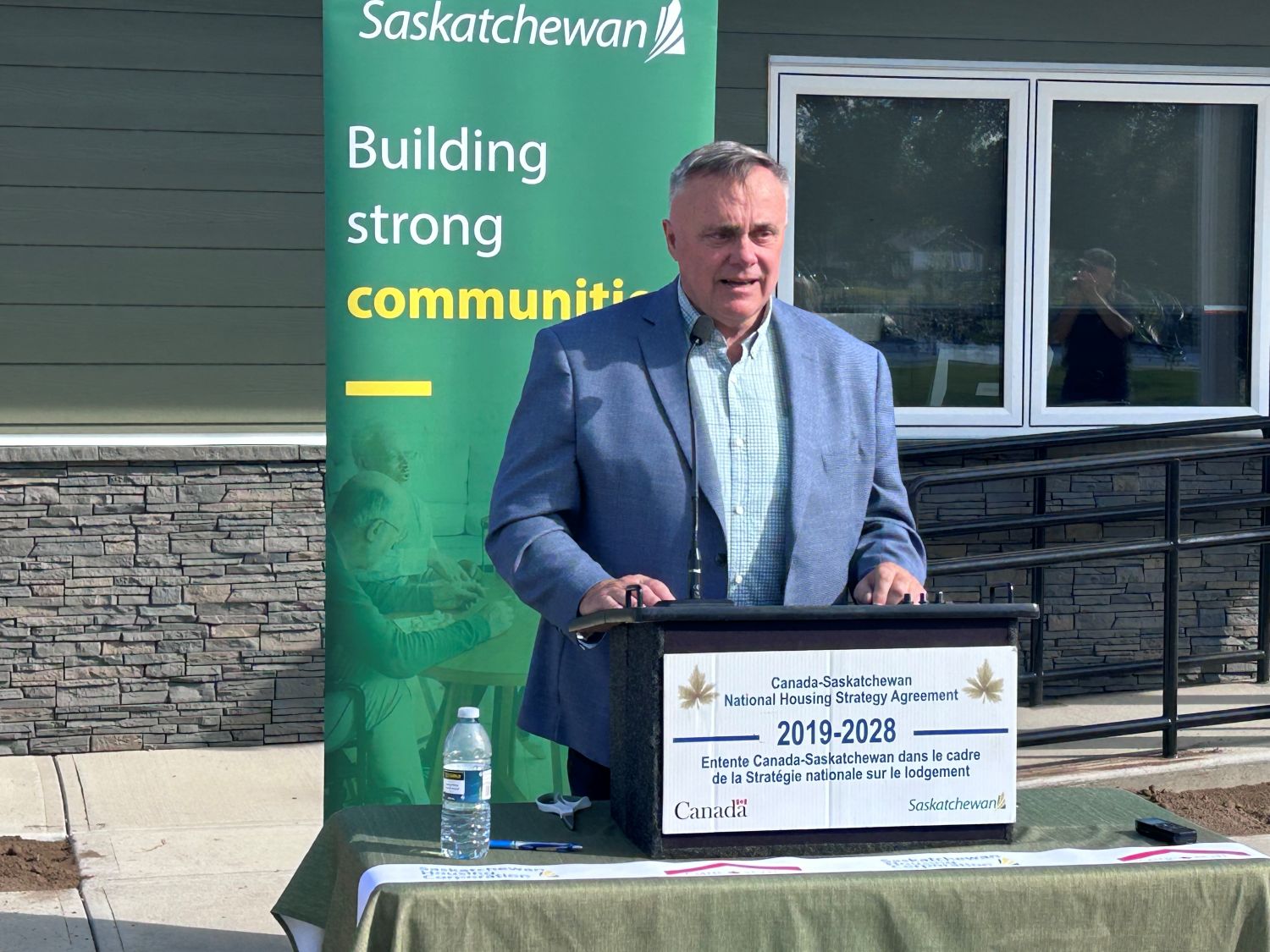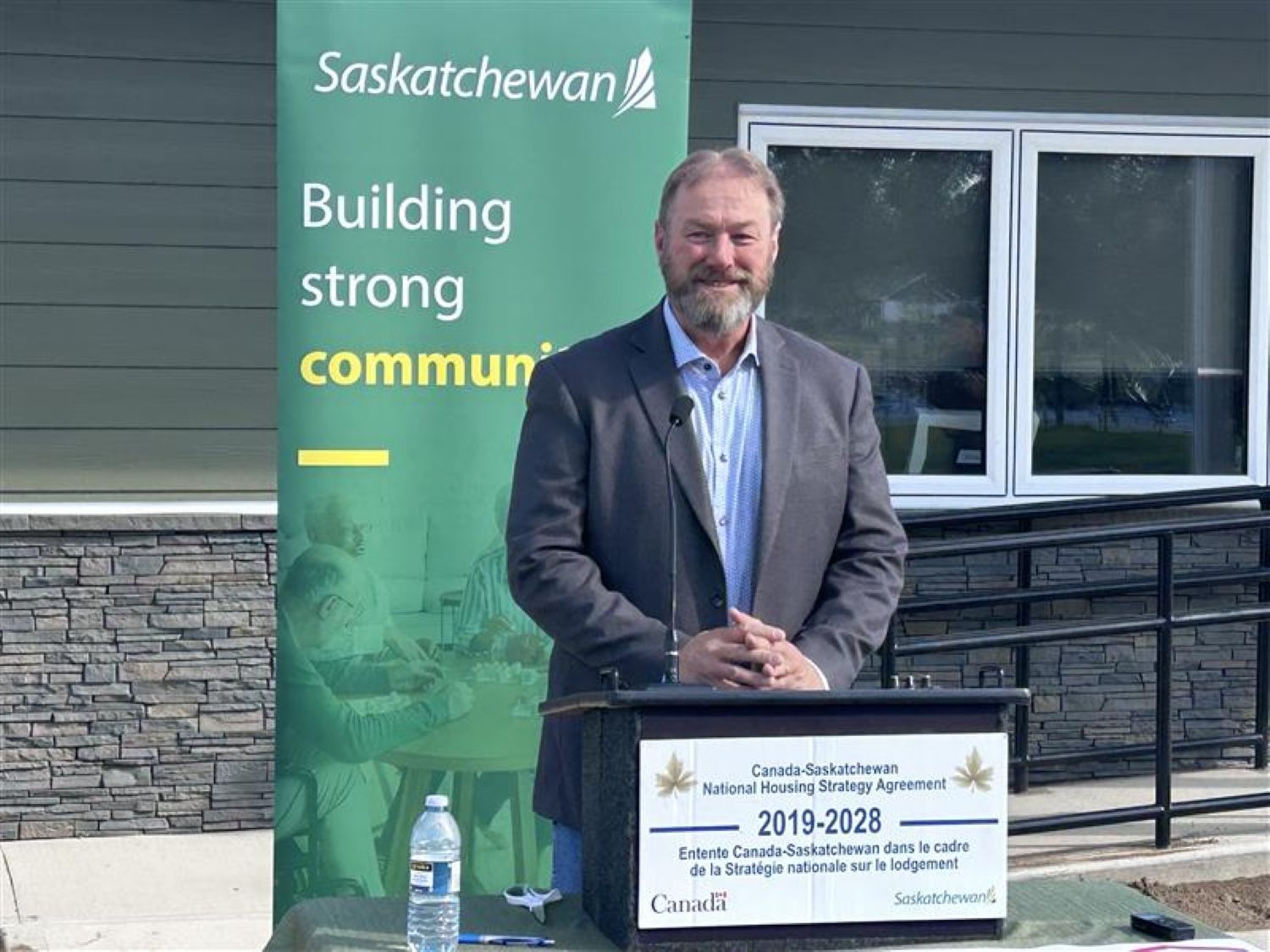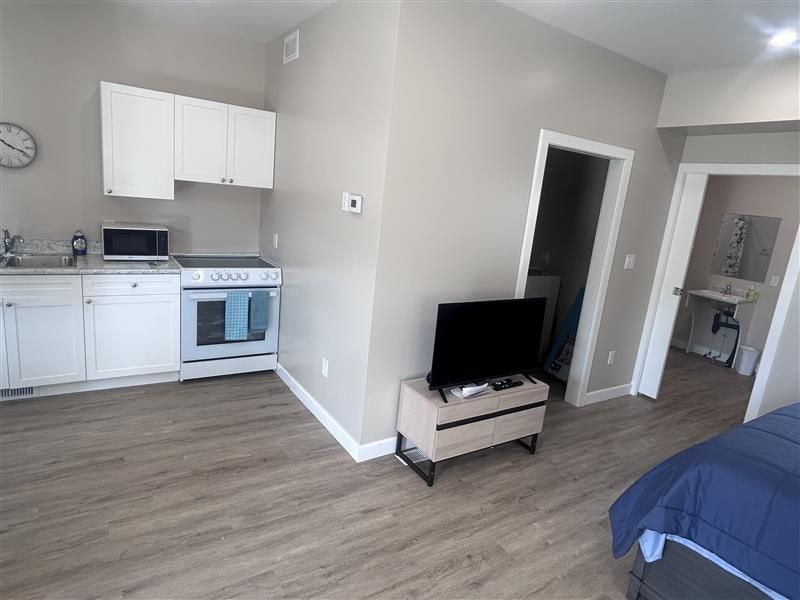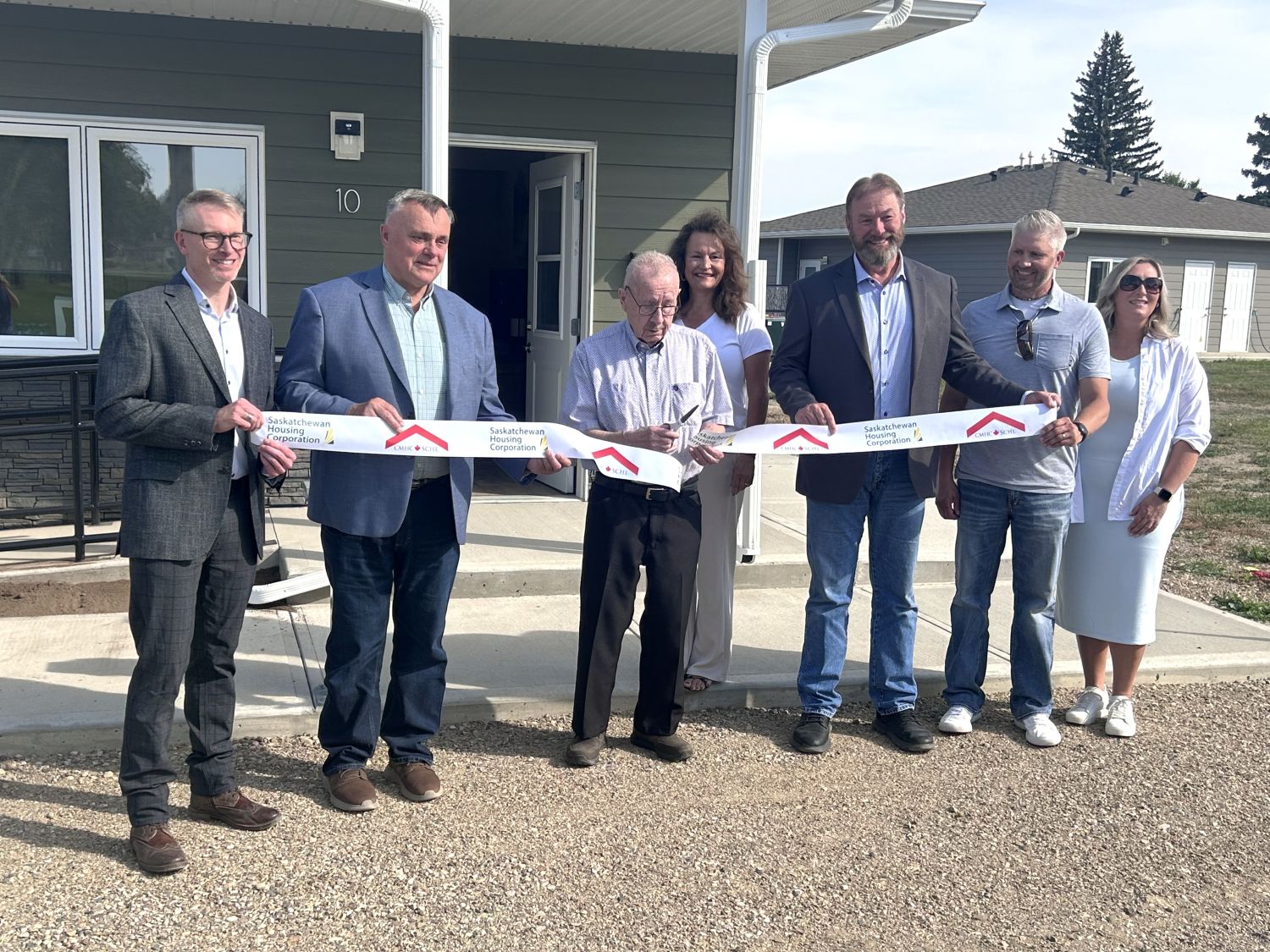Another major housing project officially opened up at Prairie Pioneers Independent Housing in Swift Current today.
"Very important day," said Prairie Pioneers CEO Deborah DeMars. "This has been a passion project of mine, and I'm over the moon that it's in place."
At a cost of over a million dollars, they've added two additional spaces for people with acquired brain injuries and two for seniors' transition housing.
70% of the funding comes from a Canada-Saskatchewan Bilateral Agreement under the National Housing Strategy.
"It's a joint federal-provincial program," said Saskatchewan Minister of Education and Swift Current MLA Everett Hindley. "We're grateful to our federal partners to be able to support that and there are a number of those types of initiatives where the federal government and the provincial government will have identified a need and will try to support it with joint dollars and I think allow for some flexibility recognizing that housing needs in Swift Current, Saskatchewan are different than Toronto, Ontario."
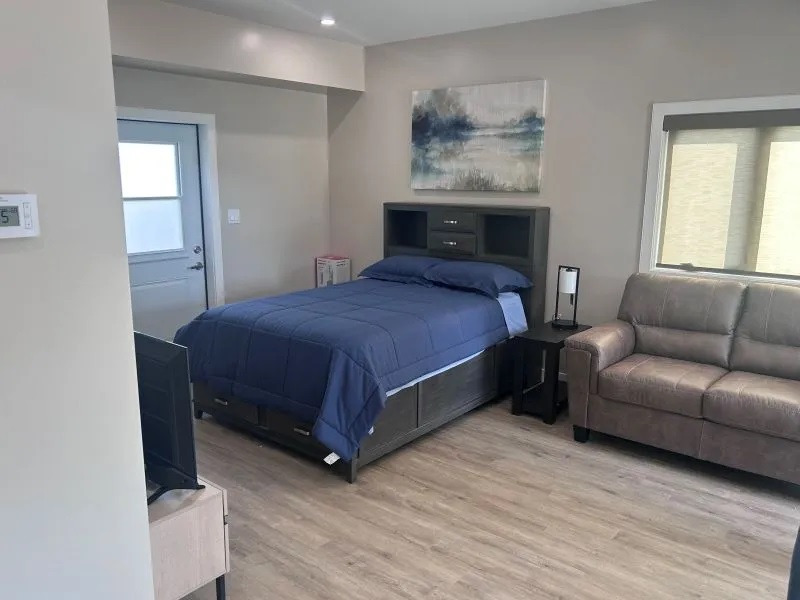
Prairie Pioneer built another duplex to house those impacted by acquired brain injuries to bring their total spaces up to six. They are all filled.
The transition housing is something new.
"It's a new concept," DeMars said. "We're trying to really do something different, target specific individuals, and the transition housing is doing that as well. We have a waiting list of like 67 people, so if someone needs immediate housing, I was not able to provide that. It was just not going to happen. There are individuals that were coming out, they had nowhere, whether they were coming out of a program for mental health, addictions program, long-term health problem, coming out and not having suitable housing, and I'm having to say no."
DeMars said these are people who are having trouble fitting into the usual market for housing due to cost or if they come with specific issues landlords may not be willing to deal with.
"We work closely with the different organizations, social services, the safe shelter, other support systems, and Saskatchewan Health Authority," DeMars said. "We have more of that relationship to be able to house individuals that would normally not make it and be successful in the market housing. So that's where this transition housing comes in. We house them until we can get them a permanent home. We try and do that as quickly as possible. We're just in the infancy of this. We want to start working with Swift Current Housing Authority so that we can say we've got this individual, can you house him for us right away if we can?
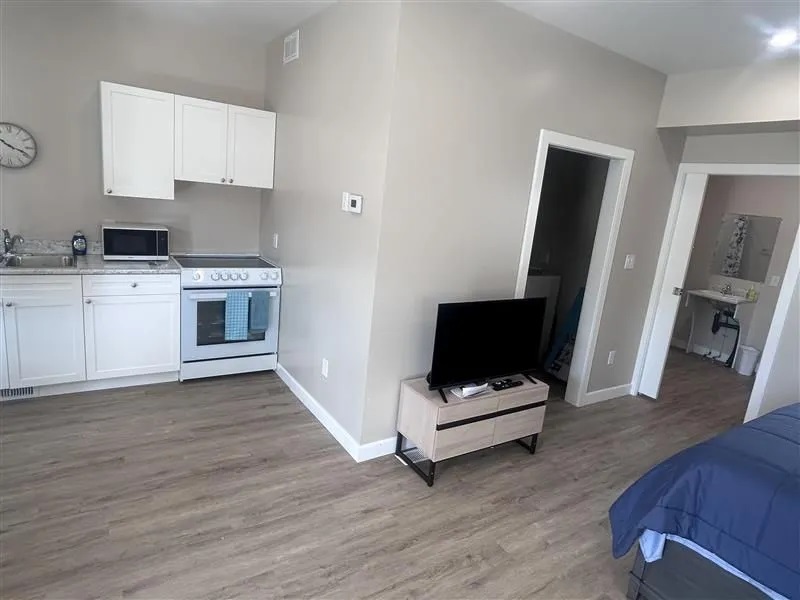
"We had an individual in here right away, and we didn't even have our protocols firmly in place. We're doing it, right? And we're finding things out along the way, but it's a huge success. I already have another individual moving into this unit. My acquired brain injury units are full, and I think that just speaks to the need in both of those areas."
The acquired brain injury homes are set up so they can meet the different needs for unique circumstances.
"The units will have different attributes depending on the individual because every acquired brain injury individual has different needs," DeMars said. "Some don't like bright light, so you create dimmers. Some need a lot of privacy, you know, so you're going to create areas that they can have that are super private. Some are really sensitive to cold and heat. So, you know, one individual, the family said he's very sensitive to the heat, he put in an air conditioner. As soon as we get that individual in place, if we have to add certain supports in there, additional safety supports, then that's what we do. It's very fluid because not every resident is going to have the same needs."
DeMars and Prairie Pioneer Board Chair Tom Christiansen both noted in their presentation at the grand opening that they may take a pause for a year in seeking another new build with the federal and provincial governments. They still intend to tackle more needs down the road.
"Everyone deserves a safe place to call home. By working together with local partners here in Swift Current, we are making that possible for people who need it most," said Federal Secretary of State (Rural Development) Buckley Belanger in a release. "This is an important step forward, and we are going to keep working to make sure more Canadians have a safe, affordable home they can count on."
The National Housing Strategy deal between Ottawa and Saskatchewan runs through 2028.

